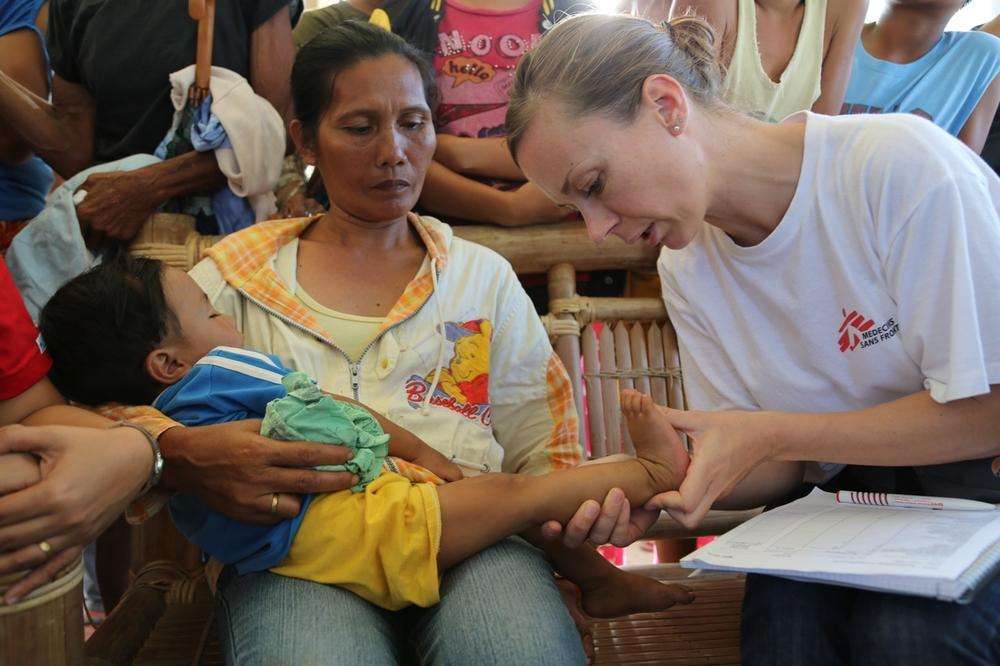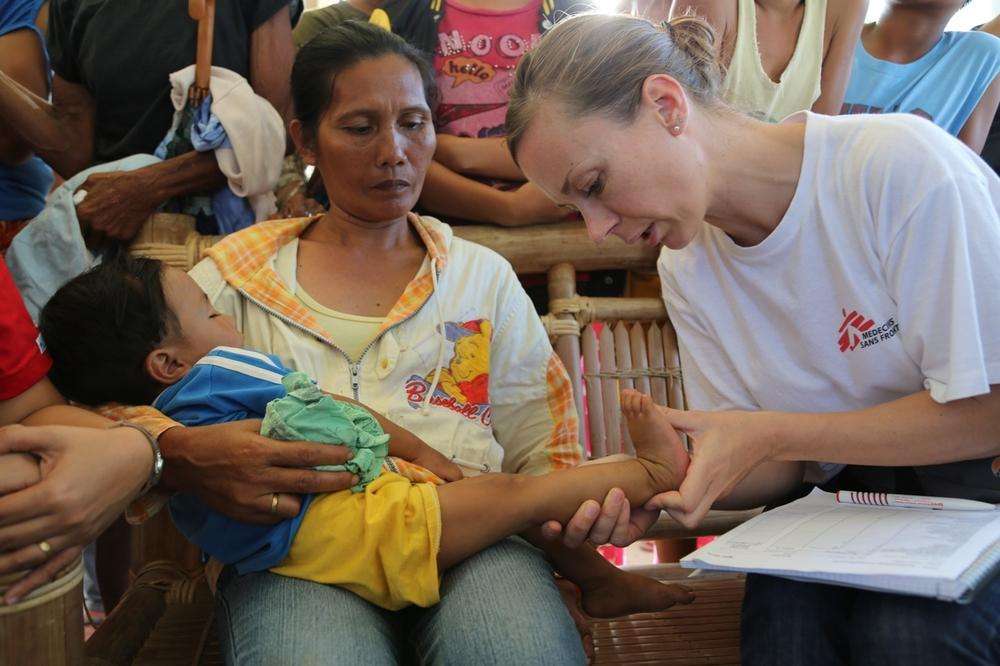Doctors Without Borders/Médecins Sans Frontières (MSF) teams in the Philippines are treating patients for wounds, chronic medical conditions, infections, and psychological trauma. Here, Dr. Natasha Reyes, MSF emergency coordinator, describes the widespread needs.
MSF has been doing medical consultations in the ruined town of Guiuan for the past four days. Six hundred patients came on the first day, and although numbers dropped on subsequent days, it gives an indication of people’s health needs in the typhoon-affected zone. At the same time, MSF teams on different islands are doing their first consultations, so we are beginning to build up a picture of the needs and the individual human suffering that has accompanied this disaster.
The most serious cases we’ve seen in Guiuan are people with injuries directly caused by the impact of the fierce wind. We’ve seen around 60 people needing minor surgery—procedures needing local anesthesia for suturing, cleaning of infected wounds, and the routine setting of broken bones. The team saw some very nasty head wounds. Some had previously been stitched up but had since become infected, and the clinic had to start again and clean the wound.
We also saw a number of people with diabetes who have badly infected wounds. They just don’t heal so well, and there is at least one man who will probably have to have an amputation because the infection has become dangerously advanced.
MSF’s team in Santa Fe town, not far from Tacloban on Leyte island, has seen around 150 people at their clinic, and report the same kind of injuries. There are cuts and wounds from nails, from stepping on the wreckage of buildings. So tetanus vaccination is a top priority.
Then there are the large number of people who were the indirect victims of the storm, like an older man I saw with chronic obstructive pulmonary disorder, a serious lung condition. He wasn’t doing well. He had lost his inhaler, which is distressing and dangerous in his condition. For people with chronic diseases like that, it’s particularly hard. We have also seen children who are epileptic and have run out of their medication.
There are also children with gastrointestinal infections and diarrhea, almost certainly from drinking dirty water, which is all that’s been available. The exposed, wet conditions have aggravated respiratory tract infections, which are common too. But the teams say that these illnesses are not yet at alarming levels.
MSF’s teams on Panay island, to the west, have seen more than 350 patients in their three clinics in and around Estancia, and the pattern is much the same there. All of our medical teams are on the lookout for the very dangerous diseases that are endemic in the area—typhoid, schistosomiasis, cholera, and leptospirosis. The worry is that the conditions people are living in as a result of the disaster might trigger an outbreak.
One of our priorities will be to provide maternal and obstetric services. In Guiuan, the MSF team helped deliver their first baby on Monday. Before the typhoon, the town’s hospital saw 10 or 15 births a day. There are always cases with complications that might need surgery, so the capacity for obstetric services clearly needs to be increased.
Mental health—and the inevitable psychological impact of the disaster on people living through it—is also a focus for the MSF teams. On Panay island, people are coming to the clinic with physical symptoms that may well have an underlying psychological cause: they describe mysterious pains in the body, as well as nightmares and disturbed sleep. These symptoms are a normal response—but often they don’t know that. We need to get out there and tell everyone that this is an absolutely natural reaction.
Many people are too busy now to absorb what has happened. I met a woman who had lost her daughter and her mother in the typhoon. She told me about it in a very matter-of-fact way, and said that she cried when it happened but had not cried since. I think many of the effects of the disaster will be delayed. Our teams will be busy for some time.





